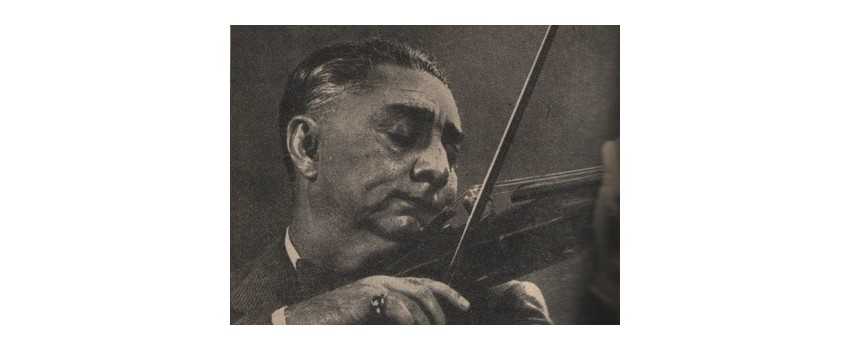Dinicu, Grigoraș Ionică
Grigoraș Ionică Dinicu was a renowned Romanian violinist and composer of Roma ethnicity. Born on April 3, 1889, in Bucharest, Dinicu was raised in the neighborhood of Scaune, which was known for its talented lăutari musicians. His father, a busy lăutar himself, entrusted Dinicu's musical education to "moș Zamfir," an old violinist who taught him the first tunes. Recognizing his talent, Dinicu's father enrolled him in the Bucharest Conservatory, where he studied under the guidance of Dumitru Georgescu-Kiriac.
Early Life and Education
Dinicu's early life revolved around music. He immersed himself in the rich Roma musical traditions and honed his skills as a violinist. In 1902, he had the opportunity to study with Carl Flesch, a renowned violin pedagogue. However, due to his Romani ethnicity, Dinicu was denied the scholarship he had received to attend the Vienna Conservatory. This episode deeply affected him, but it did not deter his passion for music.
Career Beginnings
After graduating from the Bucharest Conservatory, Dinicu joined the Orchestra of the Ministry of Public Instruction as a violinist. He quickly established himself as a talented and versatile musician, performing both as a soloist and with the orchestra. It was during this time that he composed one of his most famous works, "Hora staccato," which he wrote as a graduation exercise. The piece showcases Dinicu's virtuosity and became a favorite among violinists around the world.
Concerts and Tours
Dinicu's career flourished as he embarked on numerous concert tours both in Romania and abroad. He captivated audiences with his exceptional violin skills and unique interpretations of traditional Romanian and Roma music. He performed as a soloist and conductor, showcasing his versatility and passion for music. Dinicu also played in various nightclubs, hotels, restaurants, and cafés, spreading the beauty of his music throughout Western Europe.
Contributions to Romanian Roma Movement
In the 1930s, Dinicu became involved in the political movement of the Romanian Roma. He was appointed honorary president of the "General Union of the Romanian Roma" for his dedication and contributions. Dinicu used his platform as a renowned musician to advocate for the rights and recognition of the Roma community in Romania. His involvement in the movement highlighted the importance of music as a powerful tool for social change and cultural preservation.
Notable Compositions
In addition to "Hora staccato," Dinicu composed several other notable pieces that have become an integral part of Romanian music. "Ciocârlia," a tune composed by Dinicu's grandfather Angheluș Dinicu for the Romanian pan flute, gained popularity through Dinicu's interpretations. Other well-known compositions include "Hora mărțișorului" (inspired by the Romanian seasonal holiday on March 1), "Ceasornicul" (meaning "The Clock"), and "Căruța poștei" (meaning "The Post Wagon"). These compositions showcase Dinicu's ability to infuse traditional Romanian melodies with his own unique style.
Recognition and Legacy
Grigoraș Dinicu's talent and contributions to the world of music did not go unnoticed. Renowned violinist Jascha Heifetz once praised Dinicu as the greatest violinist he had ever heard. His music continues to inspire and influence musicians across generations. The jazz manouche violinist Stéphane Grappelli, in particular, admired Dinicu's style and the way he played the violin in the lăutarească music tradition. Dinicu's legacy lives on through his recordings and the admiration of those who appreciate his remarkable talent.
Personal Life and Passing
Dinicu's personal life remains relatively unknown, as his focus was primarily on his music career. Tragically, he passed away on March 28, 1949, in Bucharest, at the age of 59, due to laryngeal cancer. Despite his untimely death, Dinicu's music continues to be cherished and celebrated, preserving his legacy as one of Romania's most exceptional violinists and composers.
Conclusion
Grigoraș Dinicu's life and music exemplify the richness and diversity of Romanian and Roma musical traditions. Through his exceptional violin skills and compositions, he left an indelible mark on the world of music. Despite facing obstacles due to his Romani ethnicity, Dinicu's passion and dedication to his craft allowed him to transcend boundaries and become a celebrated figure in the music industry. His legacy lives on through his recordings and the ongoing appreciation of his remarkable talent.

